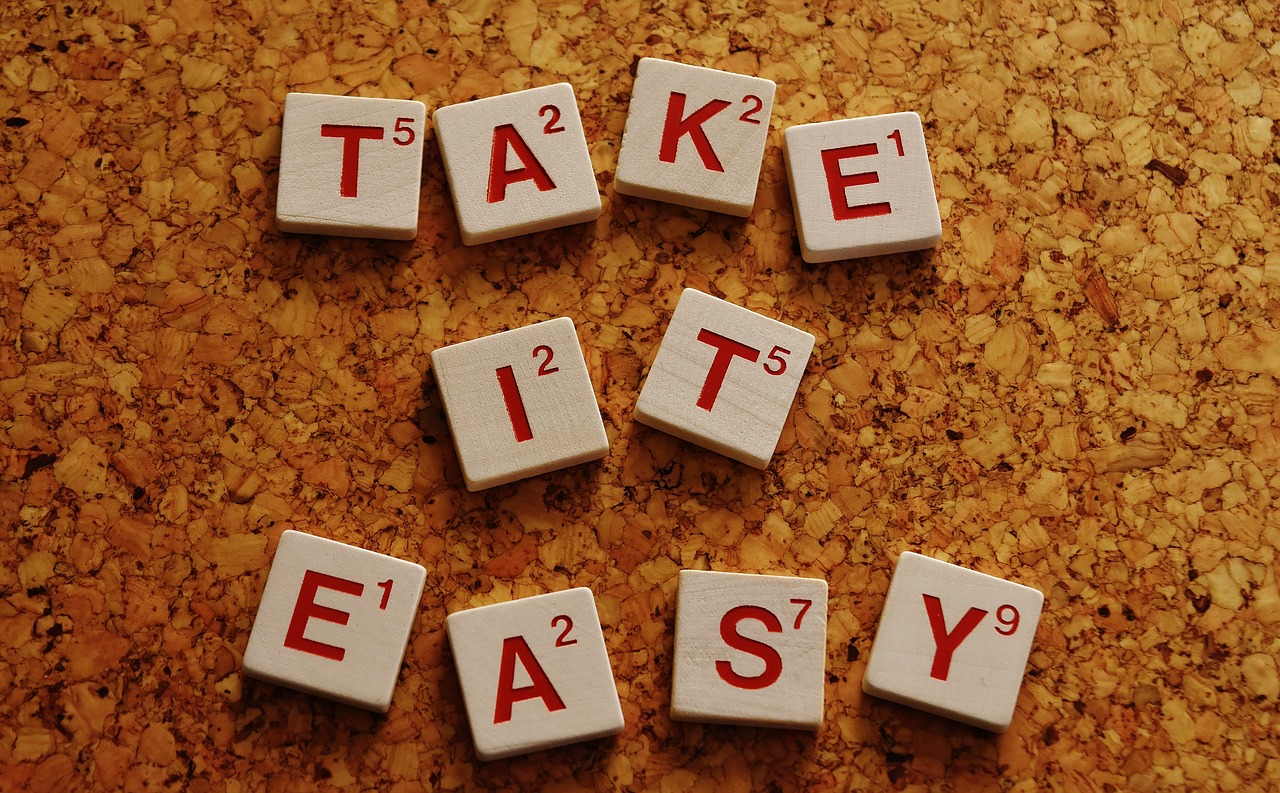Cabin Fever and the Coronavirus: How to Cope
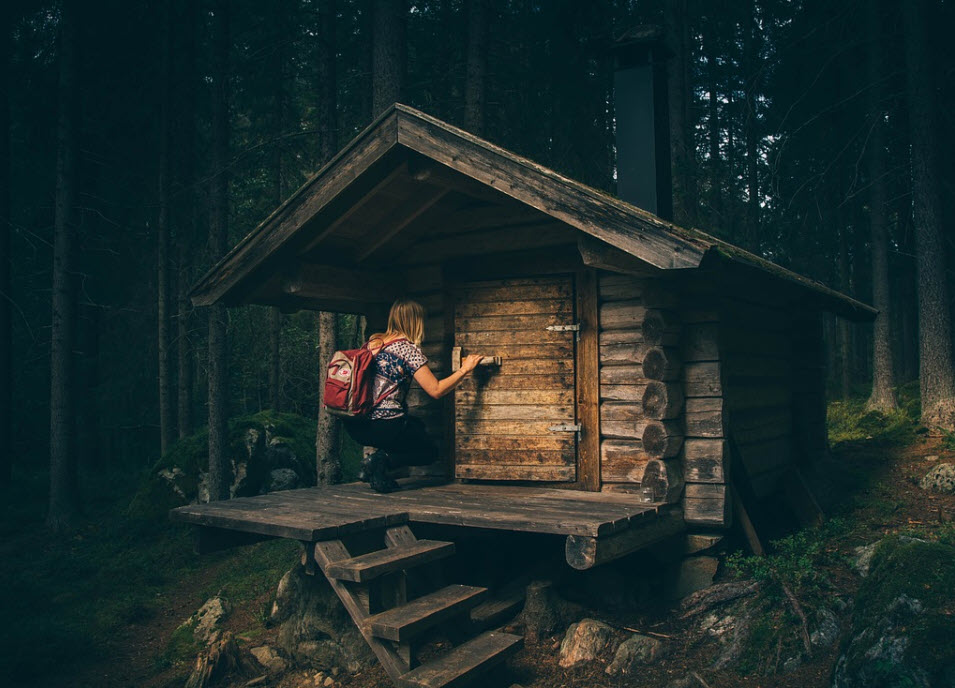
With the arrival of COVID-19 to the United States, we are being encouraged to practice social distancing. Holed up at home, many of us are feeling the effects of “cabin fever”.
While most states in the US are under voluntary orders to practice socially distancing due to the current Coronavirus pandemic, California has implemented a mandatory stay-at-home order. Experts suspect other states will follow suit.
In the Tampa Bay area where I live, restaurants have been ordered to close, with take-out and delivery as the only options for “eating out”.
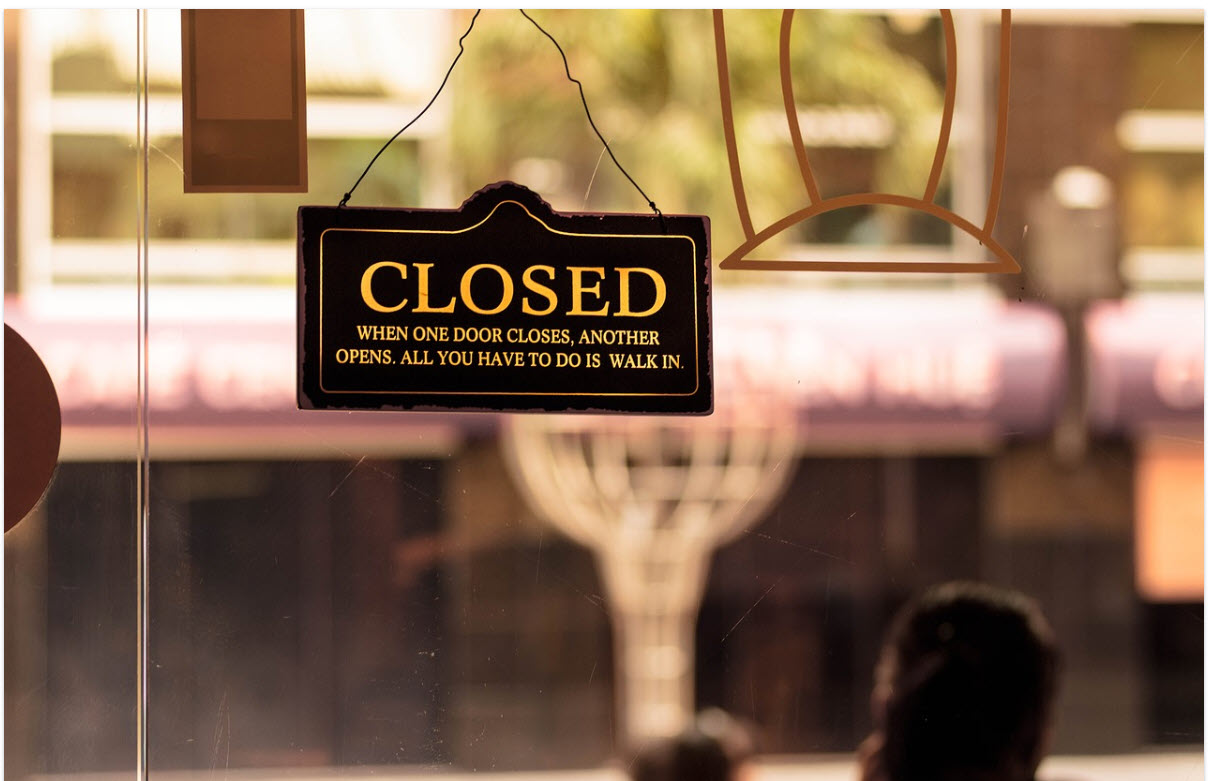
Group activities, like team sports have been postponed. Students are now taking classes remotely. Many workers, who have the capability, are being sent home to work from home.
State Parks have closed, as have the public beaches. These limitations to our daily lives are causing tension because people are feeling antsy after being stuck indoors for long periods of time. We need ways to blow off steam, especially with the increase in anxiety many of us are experiencing as a result of this pandemic.

If the places we usually go to get out of the house are becoming increasingly limited, what are we to do?
Coronavirus, Anxiety, and Stress
On top of the stress related to Coronavirus and how it may affect our families, our normal life stressors persist. Our pre-virus lives and our usual worries haven’t gone away. Many workers are facing the additional hardship of lost wages due to the closure of many establishments.
Daily activities, which are essential to maintain our sense of mental well-being, have come to a grinding halt. Gyms are closed. Venues for socializing have been shuddered.

We are reassured that these changes aren’t permanent, but for now there is no clear end in sight. They are indefinite. We don’t know how long these changes in our lives will last. No one can truly reassure us of a timeline.
At its nature, anxiety is the fear of the unknown and there is much we don’t know at this point.
This is the time to consider ways you can stay active despite being isolated in your home. Throwing yourself into activities can provide a good distraction, especially if they are able to get you into a state of flow. The flow is a term used in positive psychology that some refer to as “being in the zone.”
A state of flow is when you get so engrossed in something that you lose sense of time. It’s a period of hyperfocus and it can be compared to a trance-like state. It allows for a time of intense enjoyment while your worries disappear for a period of time.
Family Activities
With the kids home from school, you have a unique opportunity to spend quality time with them. Many parents will feel obliged to keep their darlings occupied, but I read a wise post on Twitter that I’ll paraphrase here: Parents, do not feel guilty for not keeping your children occupied, for not ensuring their mental and spiritual enrichment. The fact you have them safely at home is sufficient.
With the whole family in close proximity for long periods of time, everyone is likely to be grouchier. I think it’s fair for parents to let go of their guilt and allow children to spend more time on their devices.
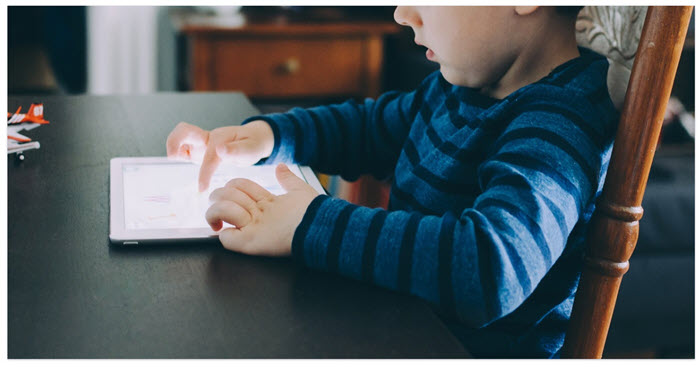
A few more hours a day on tablets and video games isn’t going to kill them. Much of the material can be educational. It’s not all bad. This period of being in extremely close quarters is temporary and you deserve peace and quiet for at least part of the day.
Make a family night a few days a week. Keeping your kids engaged doesn’t mean you have to suffer through the torturous activity of playing baby dolls with your 6 year old; and you don’t have to limit yourself to play mind-numbing rounds of go fish.
Learn a new game that is enriching and fun for all. There are many top-rated games you can grab during your trip for groceries at your local big box store or they can be easily ordered online.
Hobbies
If you have existing hobbies that you would like to improve upon, this is the time to work on improving your skills. Work on getting yourself to a more advanced level. Are you a knitter? Check out free online tutorials that teach more advanced stitches.

Are you into cooking, but find it’s a chore to cook for the family on the weekdays after a tiring day of work? Try challenging your own skills by scouring the internet for interesting recipes and surprising the family with a gourmet dinner. (Make the kids clean up, of course!)
Is your most advanced cooking skill boiling water? If so, teach yourself the basics with some online instructions and include the kids. Basic cooking skills are important ones to impart to your children.
Home Improvement
Are there home improvement projects you have been putting off? Or is your home in need of a good spring cleaning?
Now is the time to consider throwing yourself into making those changes you never seem to have time to finish. Replace that dripping sink. Tear up that deck that’s dry rotting. Power wash that mold-smattered fence.
An improvement activity that requires physical effort will naturally make you feel better because of the natural release of endorphins, and the feeling of accomplishment is likely to boost your spirits.
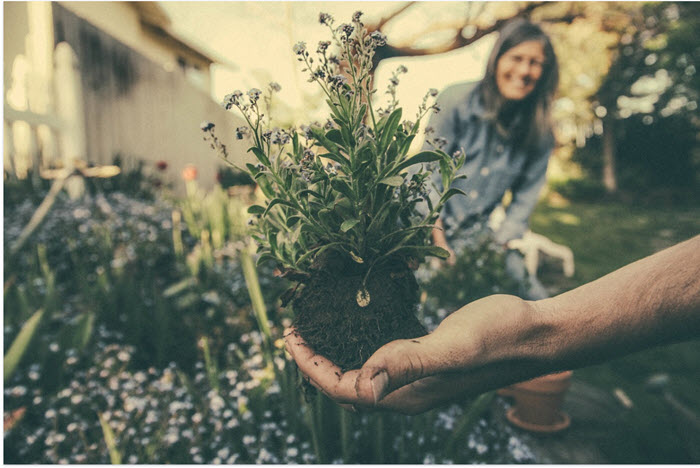
Plant that garden you’ve dreamed of but have never accomplished. We are in the perfect season to start prepping. Gardening is a great activity to teach children. They can help out and learn about plants. Working out in the sun is a natural anxiety reliever.
Help Others
A nurse who works on my team, who also happens to be a wonderful person, shared that she is coping by helping others. She is checking in with her church and neighborhood acquaintances to see what she can do to help. This includes offering to run errands, like trips to the pharmacy and grocery store.
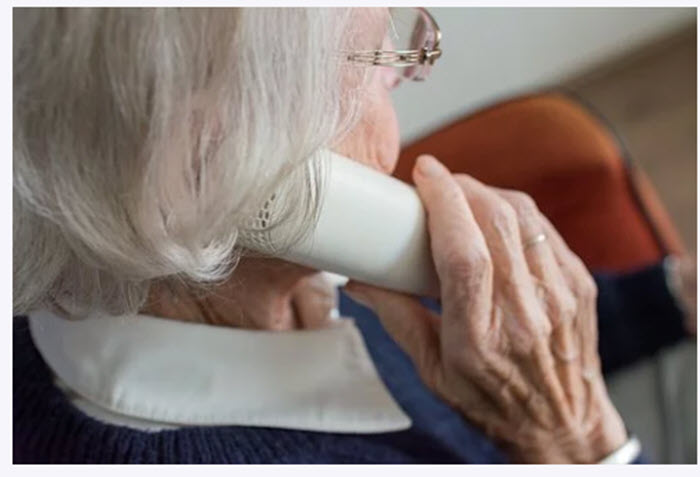
I had read this idea on Twitter and offered to do the same in my small community where we have a high number of older adults. With families spread around the United States nowadays, many elderly do not have the family support to help them out in this trying time.
Get Outside
While many park facilities, where people congregate inside, have been closed, the common areas in our local parks remain open. Granted, here in Florida we have the benefit of nice weather. Those in more northern states may not find the weather in their area as cooperative.
My partner and I have taken advantage of this time to get outside and try things we’ve never done together.
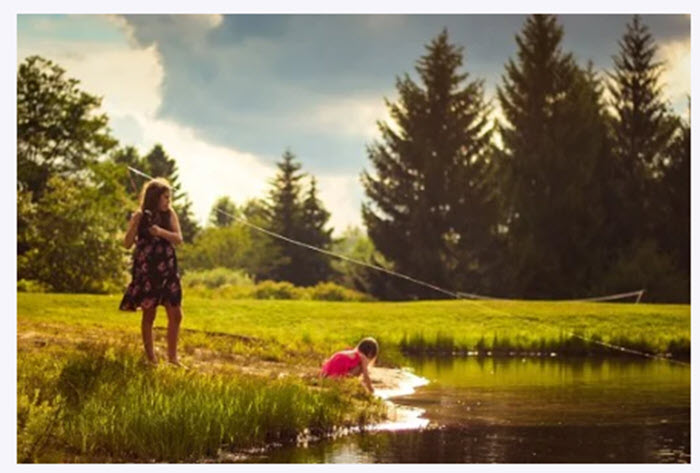
Fishing was our first venture. It’s been ages since I’ve fished, and my only experience has been in the Florida Gulf. My last childhood memory of fishing was one in which I was a natural angler. I got bite after bite, so I expected the same to happen during our outing to a local freshwater lake.
I was disappointed to pull up nothing but some stubborn lake vegetation and a stick, but chilling on a camping chair and enjoying a few beers in the sunshine was therapeutic nonetheless.
We have learned to play pickle ball, a game that’s like a combo between tennis and ping pong. Getting out and enjoying these activities doesn’t involve physical contact or even close proximity to others, but we have met some nice people who helped us hone our new skills.
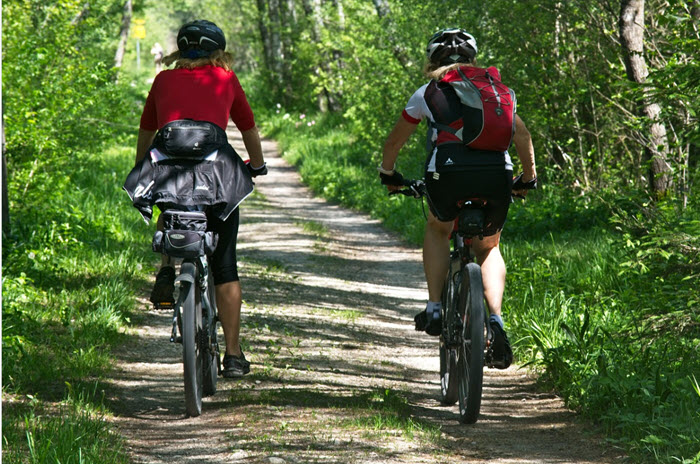
Trail riding has proven to be not only a physical challenge for getting in some cardio activity, but an opportunity to commune with nature. Surrounded by rummaging wildlife, the chirping of birds, and the green canopy of trees has been naturally therapeutic.
We located a low-trafficked hiking trail that ran alongside a river. In spite of warnings against swimming, I took a dip anyway. (That’s our little secret!)
Bringing along a picnic for enjoying in a secluded clearing will be an addition to our next cycling adventure.
Hob Nob with Neighbors
You know those neighbors, the ones right next door that you’ve simply waved good morning to but have never had a conversation with?
In the normal course of our busy lives, between work and taxiing children to extracurricular activities, many of us don’t have the time to get to know our neighbors. This might be a time for us to communicate with people who live nearby but that we barely know.
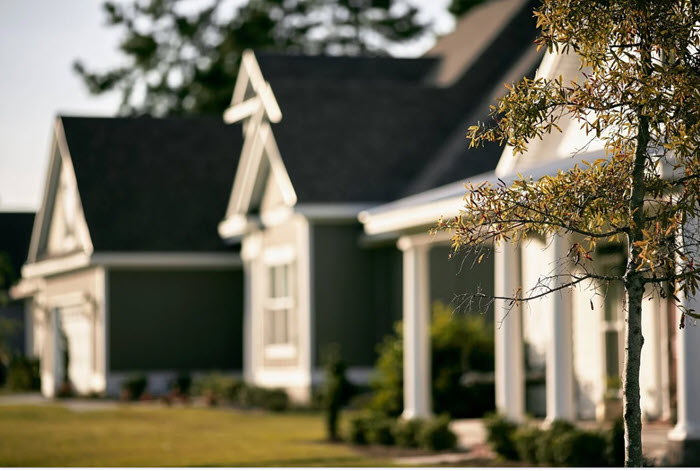
Take advantage of everyone being home to get to know them better. There is no reason to break your social distancing commitment to do this. My neighbor invited a few of us over to chit chat over a few glasses of wine.
We brought some camping chairs, plopped ourselves down in her driveway, kept our distance and spent time getting to know each other a little better.
Social Distancing and Extroverts
One could argue that the limitations in socializing are taking a heavier toll on extroverts than on introverts. This is a simplification, as most people fall along a spectrum between extrovert and introvert; but those who fall closer to the extrovert extreme need social interaction to maintain their mental well-being.
So, what is an extrovert to do in these times of decreased social contact?
We are fortunate to have modern technology at our fingertips. While communicating with our loved ones via video chat doesn’t exactly provide the same comforting effect, we should use this ability to keep in touch and nurture our relationships with others.
Common qualities of extroverts include: enjoying social situations, thriving by being around others, making friends easily, preferring to talk out questions and concerns, acceptance of risk (e.g., a higher likelihood to expose themselves to risky situations), and flexibility.

When comparing extroverts and introverts, you can think of them like this – extroverts recharge their energy by being in the company of others; while introverts need solo time to recharge their battery.
My more introverted friends have said the imposed stay-at-home period has been glorious. They can enjoy their solitary hobbies and activities without feeling the pressure to socialize.
For those of us with a more extroverted leaning, cabin fever is starting to take a toll. For this reason, extroverts need to seek out other ways to get their social needs met.
Care for Yourself
Turn off the TV
At least turn off the “news” channels. Right now the 24-hour news cycle is allowing the media to report non-stop on every angle of what’s happening with the Coronavirus. If you’ve noticed, it tends to have an alarmist tone and most of it is negative.
You aren’t going to miss anything essential by turning it off. In order to keep up with essential information, plan to watch your favorite broadcaster or read your favorite newspaper once a day, then call it quits.

Make sure to stick with reputable sources when exposing yourself to information related to the Coronavirus. There’s a lot of misinformation floating around.
Stay off Social Media
Social media has a contagious (no pun intended) quality. Not only can social media get you unnecessarily worked up, a lot of it isn’t based in fact. By reading others’ posts you are usually reading opinion, half-truths and sometimes even conspiracy theories.
Social media creates a bubble where you will be exposed to a narrow point of view. It has a tendency to cause outrage which is the last thing you need when you’re trying to preserve your mental well-being.
Sleep
Anxieties may have interrupted healthy sleep patterns, but try your best to get a good night’s rest. You can do this by having a nighttime routine. That includes turning off electronics an hour before hitting the sack.
Avoid drinking too much alcohol, as alcohol can contribute to restless sleep. Indulging in too many drinks won’t just cause you to sleep poorly, it will cause you to feel groggy in the morning.

During times of stress, you need as much mental clarity as possible.
Eat Well
During anxious times, eating carbs and other junk food can feel comforting. They give a temporary sense of well-being and relaxation; however, in the long term you want to care for your immune system.
In the short term, it may feel comforting to binge on a bag of chips or go through a whole pint of Ben and Jerry’s but it will only leave you feeling sluggish and you will be substituting junk for the nutrients your body needs to fight illness.
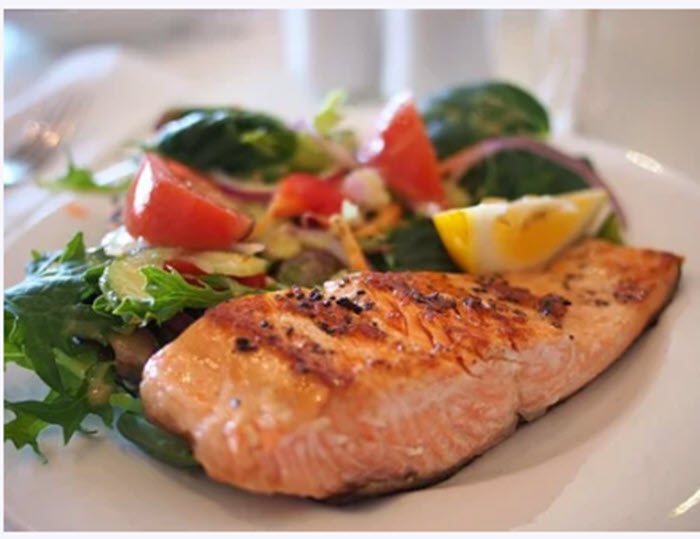
In order to feel as energetic as possible, try eating more veggies and sufficient protein.
Meditate
If you already meditate as part of your daily routine, good for you. Keep it up!
If this isn’t a regular practice for you, now might be a good time to start looking into meditation as a natural stress reliever. There is a lot of free information about meditation and mindfulness on the internet.
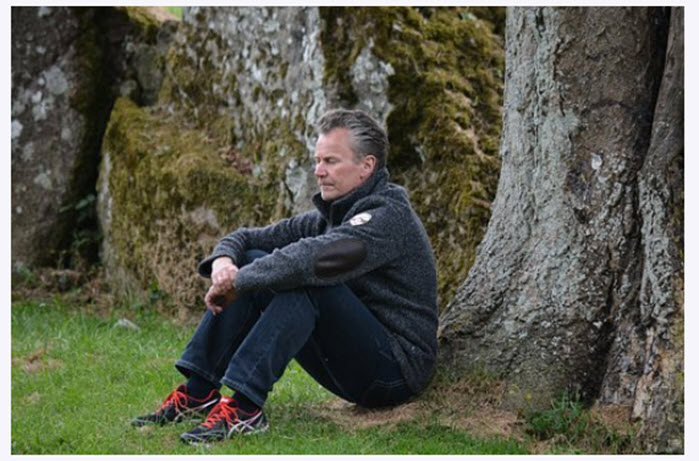
There is no need to pay for this information, as there is a lot of free information on the internet, including videos on YouTube. If you are interested in reading a book on mindfulness, you can check out our reviews of the best books on mindfulness here.
I hope you enjoyed the information shared in this article, and hope you and your loved ones stay well. If we all stick together, we will get through this and come out stronger in the end.

